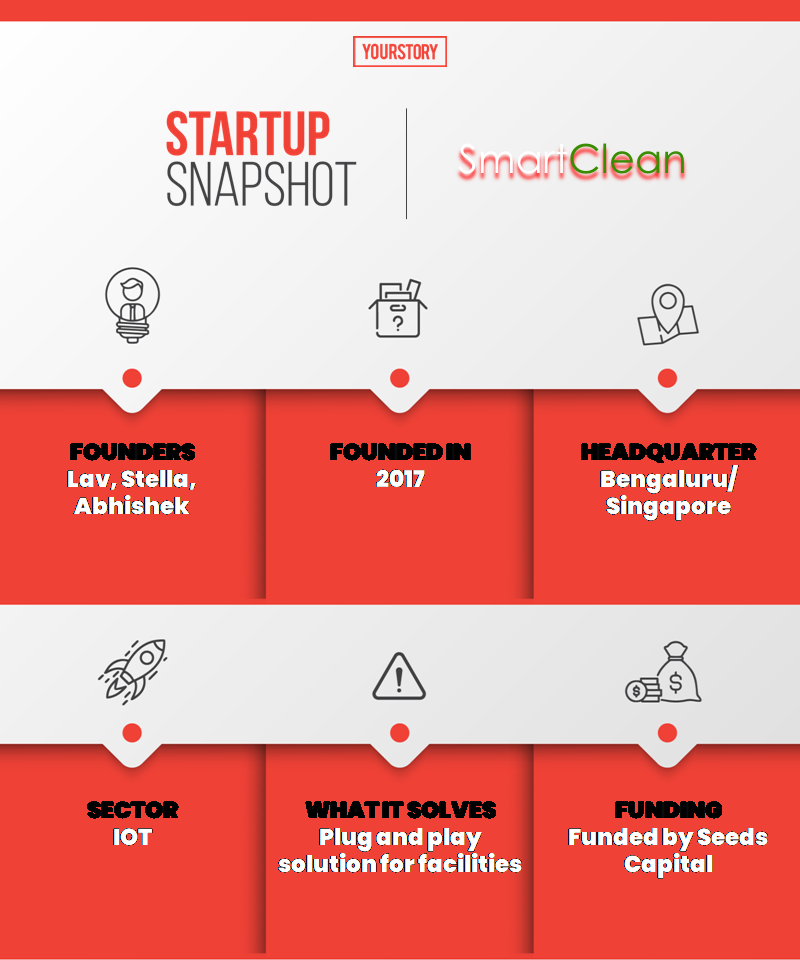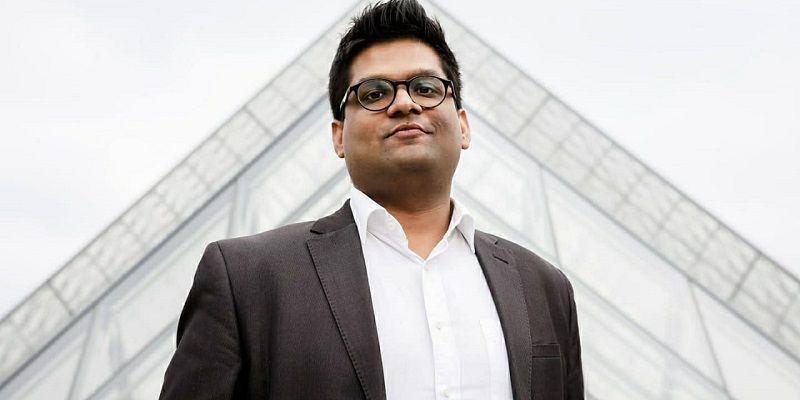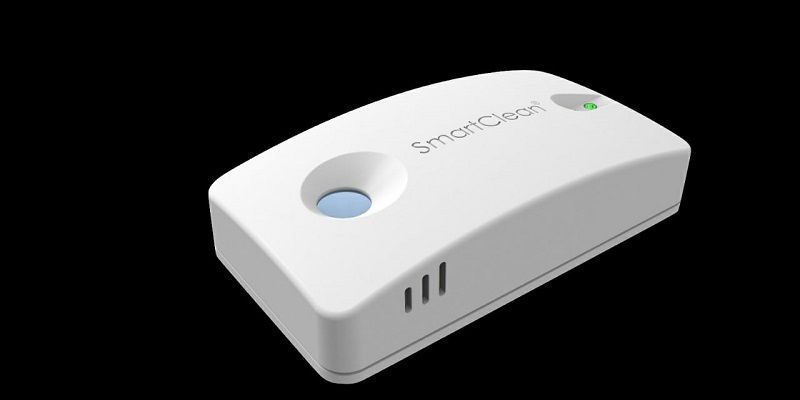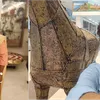Startups often have an uncanny knack of figuring out low hanging fruit. In the facility management and the cleaning industry, processes are labour intensive with a very high attrition rate, which leads to failed service level agreements.
This is a global problem where companies are left with overused and damaged equipment. It is nearly impossible for a supervisor to maintain cleanliness at a facility without being physically present and manage the array of workforce management systems.
To address this, Smart Clean, a Bengaluru and Singapore-based startup, uses IoT and SaaS to bring the entire ecosystem of facility managers on to a single platform. The company was founded by Lav Agrawal, Stella, and Abhishek Mishra in 2017, and their tech provides cleaners and their managers with real-time notification with work details. Their job is uplifted from cleaners to technology managers.
"With this platform, cleaning supervisors get a virtual 360-degree view of the entire facility's cleaning requirements and actions being taken. They can reduce their manpower by at least 30 percent, thus resulting in a positive ROI. SLAs are met and adhered to, and consumables can be planned ahead. The advanced data analytics system enables predictive cleaning," Lav Agrawal tells YourStory.

SmartClean
The early days
In early 2017, two of the co-founders – Lav Agarwal and Abhishek Mishra – were pursuing their PhD in NTU and NUS, Singapore respectively, and were working in robotics startup for service industries.
Lav and Stella had met in late 2016 where she discussed day-to-day issues and the problems that she faced while running a cleaning company (Spotless) in Singapore back in 2012. During one such discussion, they realised the potential for digital transformation in the cleaning industry and the absence of the tech adaption. After thorough research, Lav, Abhishek, and Stella Aw co-founded SmartClean in 2017.
"A commercial cleaning scene includes a set of cleaners who visit different parts of the facility periodically to identify any cleaning requirements and maintain a paper-based tracking system of their activities. The quality of cleanliness depends a huge deal on their perception of cleanliness and anomalies are not identified on a real-time basis, leading to unhappy users and unhygienic facilities," says Lav.
He adds that cleaning is often seen as a dead-end job.
Commercial properties such as hospitals, malls, office, and airports hire an Integrated Facility Management (IFM) company to run end-to-end FM operations. Cleaning and security form two of the biggest segments of facility management, and yet while the security industry is tech-driven, cleaning operations are almost all manual – with cleaners going around and doing physical checks and cleaning on a scheduled and periodic basis.
"At SmartClean, we cater to the B2B aspect of this industry. Our solutions are targeted for use in commercial spaces and used by industry stakeholders including cleaning companies, facility management firms, and hygiene companies," he adds.

Lav, Founder of SmartClean
The solution and the business
SmartClean is building an end-to-end cleaning management system for commercial properties. The system comprises patented sensors to monitor environmental conditions in real-time (similar to a security surveillance system), learns from the facility data, and autonomously runs cleaning operations of the property with a team of cleaners and robots.
The system uses advanced data analytics, machine learning, and a predictive algorithm to compute usage and cleaning requirements, which are used to send alerts to cleaners with detailed work instructions. These are used by managers to plan resources ahead, helping the cleaning industry to move from scheduled to on-demand operations, and increasing productivity by over 30 percent, resulting in net savings for the organisation.
SmartClean is also rolling out a one-stop SaaS platform called Matrix for MSME cleaning companies to digitise all of their back-end operations, including workforce management, contract management, data-driven audit, and manage payroll. This will also act as a unified platform to facilitate transparency and enable seamless information flow between all the stakeholders of the cleaning ecosystem.
The first customer and business model
"We were connected to Mt Elizabeth Hospital, Orchard in Singapore in 2018 and they became our first paying customer and have been with us ever since. Our pilot began in January 2018 and ran for a few weeks before converting to a paid customer in a short time. We began to provide smart washroom solutions on five floors of the hospital building. They are currently testing innovations like lobby monitoring (spills) along with other use cases," says Lav.
The business model for the company depends on annual maintenance cost plus SaaS subscription. In under one year of operations, the company has Rs 14 crore in revenue. The startup has been growing at 3x year-on-year.
The founders invested around $40,000 to start with, which helped build prototypes of the solutions.
The startup raised funding from an accelerator programme called AIRmaker in June 2017, selected as one of the eight out of 1,300 startups. This was followed by a seed round of $950,000 with co-CEOs of Singapore’s leading security automation company called Oneberry Technologies investing in this startup in January 2018.
They were also selected as one of the top 32 startups by the Vinci group in 2017, top IoT solution for Facility Management by Accor Hotels in 2018, and one of the top 13 solutions by Sodexo in 2019 in Viva Technology, France.
They are also the chosen partner of multinational IFM companies such as JLL and Sodexo as a portfolio offering and has proven business case with JTC and multiple other FM and cleaning companies.
Earlier this year, the startup raised Pre Series-A round of $3.7 million, with Singapore's leading environmental services company (undisclosed), alongside Enterprise Singapore's investment arm – Seeds Capital, Indonesia's leading hygiene company – Ecocare, and follow-on participation of the existing investors.
The startup is going to raise more funds going forward.
Challenges
The founders started the company because in the industry, user expectations are not met and there is no way to judge productivity and conduct audits.
"Hardware solutions are always one of the more challenging aspects compared to internet/software startups. The entire tech product development process is far more complex as it involves a physical product and can take years of R&D and commercialisation, including the steps of finding a manufacturing partner to certifying the system so that it can be shipped to different geographies. A software bug is easy to fix but a hardware product recall can kill the company. That said, if a hardware solution is done correctly, it gives immense competitive advantage and creates a defensible moat," says Lav.
One of the biggest challenges the startup has faced is commercialising low labour cost markets like India, as it's hard to justify the ROI because the cost drives the procurement decision-making. "So, we have worked on market-specific pricing with Sensor-as-a-service model which eases the procurement and justifies a positive ROI from almost day one," says Lav.
According to MarketsandMarkets, the global cleaning industry is sized at $300 billion, out of which 60 percent is organised commercial cleaning segment, involving 50 million people in operations. Thus, the manpower drives 80 percent of the cost.
In India alone, more than 10 million people are involved in cleaning operations, which has a total market size of approximately $10 billion. However, it is highly unstructured with no clear cleaning standards. The need then becomes to improve the cleanliness and hygiene at par with other markets where the focus is on process and productivity.
Hence, in India, the system is being extensively used to audit the cleaning operations and to make sure that the cleaning vendor delivers the agreed SLA, given that the system captures any cleaning issues and logs their checklist digitally.

IoT tech from SmartClean
The future
In the next 18 months, the startup will launch a one-stop cleaning management platform for Commercial Real Estate (CRE) properties. Next in the pipeline is another version of sensors to cover property-wide cleanliness monitoring. A ‘lite’ version will follow which would cost a fraction of the current cost and would cater to low labour cost markets to achieve an easier ROI for the customers.
They are in the middle of raising a large round which they will use to expand the product portfolio and will aim to fuel their APAC expansions, including building our regional teams. In terms of geographical expansion, the company will look to widen its reach across APAC to Thailand and Australia, and further to top metro cities in India.
"Cleaning is evergreen and recession-proof business. WithCOVID-19,the need for cleaning and hygiene has only gone up. We have designed multiple solutions catering to the post-COVID-19 commercial buildings. That aside, the world is realising the importance of digitising the commercial cleaning sector, thereby making us an obvious choice," says Lav.
In developing markets, IoT and PropTech solutions are still in its infancy and hence there is a requirement for a lot more market education compared to developed markets like Singapore.
The startup competes with Facilio, UpKeep, and Flywheel.
Edited by Kanishk Singh
Link : https://yourstory.com/2020/12/iot-saas-startup-facility-management-cleaning
Author :- Vishal Krishna ( )
December 11, 2020 at 04:05PM
YourStory



